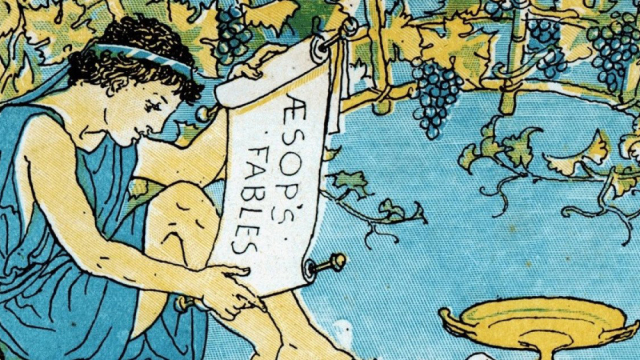Aesop's Fables is a collection of fables credited to Aesop, a slave and storyteller believed to have lived in ancient Greece between 620 and 564 BCE. His stories have been passed down to modern times through a number of sources and continue to be reinterpreted. The fables originally belonged to the oral tradition and were not collected for some three centuries after Aesop's death.
Initially the fables covered religious, social and political themes. They were also put to use as ethical guides and, from the Renaissance onward, were particularly used for the education of children. The characters of fables and tales are usually animals who act and talk just like people whilst retaining their animal traits. This theme is especially appealing to children and kids.
Each one of Aesop's fables has a lesson to teach — just like a parable or allegory. A moral is added at the bottom of each fable. Many of the Morals, Sayings and Proverbs featured in Aesop's fables are well known today. Some of the most famous morals are as follows:
- "Appearances often are deceiving"
- "Slow and steady wins the race"
- "Things are not always what they seem"
- "Beware the wolf in sheep's clothing"

